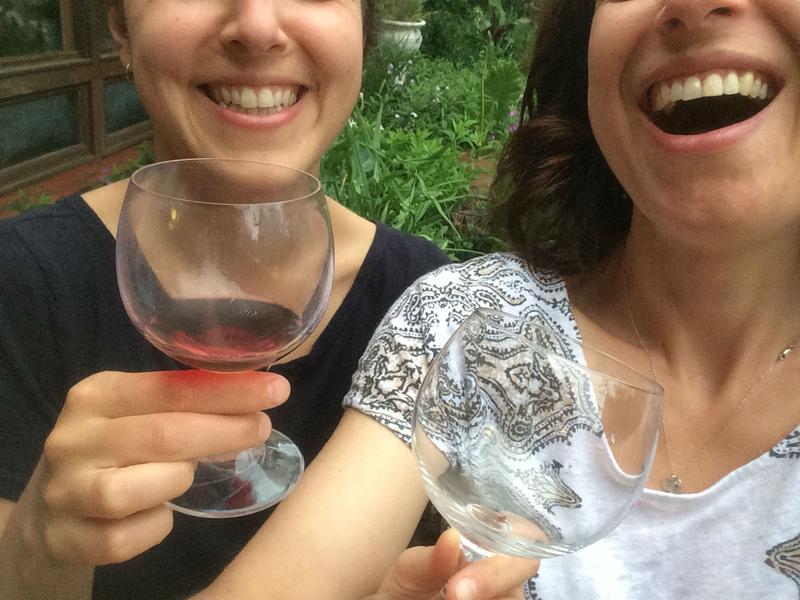When To Stop Looking for a Better Date or Restaurant
When To Stop Looking for a Better Date or Restaurant
Last week Brian Christian, co-author of the book “Algorithms to Live By,” taught us how algorithms can optimize how we live. They can help explain that messy pile of papers on your desk, or why you sometimes have a brain fart. If you missed that episode, it’s right here.
This week we’re raising the stakes (and steaks). We’re putting such algorithms to the test to see if they can actually help solve some of our daily inconveniences, like picking a place to eat or finding a date. Here’s what happened:
The Name’s Zomorodi, Gitta Zomorodi
Meet Gitta. She’s Manoush’s sister. Usually when Gitta and Manoush get together for a meal, they feel a lot of pressure to pick the perfect spot. But instead of settling, they wander around until they’re sufficiently hangry, and end up almost eating one another.
But this time out, the two decided to give “optimal stopping” a shot — that’s an algorithm that says if you evaluate 37 percent of your options and establish a baseline, the next option that comes along that is better than anything from the baseline, that is the one you should pick. Since it wasn’t really practical for Manoush and Gitta to evaluate 37 percent of all the restaurants in New York, they pledged to make their decision 37 percent faster than they usually would, which, in this case, they calculated at about 11 minutes.
They made their decision and, guess what — they had a great time. And they weren’t even hangry, so their could enjoy each other’s company. Algorithms: 1.
See Gitta (left) and Manoush (right) reveling in their new algorithmic lives:

Coffee Meets Kagel
Next, eligible bachelorette Jenna Kagel (who also happens to be one of the fine producers on this show) tried applying algorithms to online dating. She used the app Coffee Meets Bagel which, for those fortunate enough to be uninitiated, is like Tinder — you swipe “pass” or “like” on a series of profiles, and hope the other person reciprocates — but in this case you only have 24 hours to choose.
Jenna swiped away, but to no avail. She even connected with a bookstore owner in Brooklyn who didn’t respond when she asked him out to drinks. (Brooklyn book man: If you’re reading this, Jenna is out of your league and you don’t deserve her.) Algorithms: 0.
But that’s the thing: even algorithms have a margin for error. Maybe if Jenna tried again a different week, she might get a date. If Manoush and Gitta decide on restaurants using an algorithm every time, eventually they’re going to have a crappy meal. So, knowing that they’re fallible, how much trust should we place in algorithms to help make decisions?
Use the audio player above to hear move about Manoush, Gitta and Jenna’s adventures with algorithms, plus a super nerdy love story. And tell us if you’ve tried using an algorithm in real life. How did it go? We’d love to hear from you.
Subscribe to Note to Self on iTunes, Stitcher, TuneIn, I Heart Radio, Pocket Casts or anywhere else using our RSS feed.